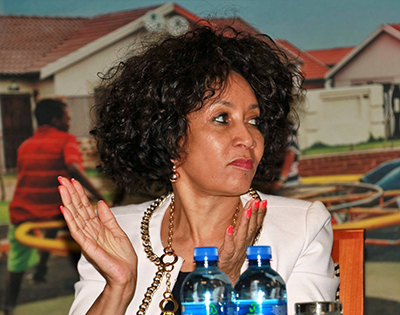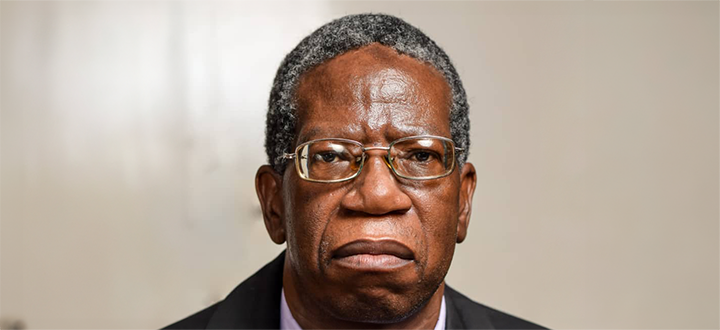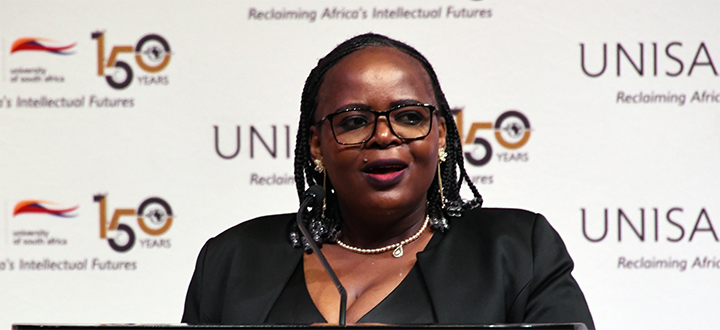Leading change
Build communities, not infrastructure

Lindiwe Sisulu (Minister: Human Settlements)
Unisa wants to get away from the perception of the university as an ivory tower on the hill and reinforce special relationships such as the one with the Department of Human Settlements, Unisa’s Principal and Vice-Chancellor, Prof Mandla Makhanya, said in his welcome address at a Human Settlements Seminar.
Lindiwe Sisulu, Minister of the Department of Human Settlements (DHS), was the keynote speaker at the event that took place on 15 August. The seminar was jointly hosted by Unisa’s Department of Public Administration and Management and the national Department of Human Settlements.
The VC said that human settlements was one of the most important portfolios today. South Africa faced a range of unique challenges. The country was absorbing migrants from outside the borders and informal settlements were mushrooming within a context of diminishing resources. A formidable programme would be necessary to deal with this. Unisa was committed to walking with DHS on the education of its human resources and to help ensure that the brainpower was equal to the task.
South Africa was playing catch-up with urbanisation and facing unprecedented challenges, Sisulu said. The country was unprepared for the level of urbanisation and learnt after the fact. Nevertheless, the country was ahead of many other countries except India. Urbanisation is a reality and the best thing is to plan for it.
According to the minister, urbanisation is currently standing at close to forty percent. Expectations are that it will grow rapidly and peak in five years’ time.
While it was important to ensure a vibrant urban settlement, things should also be done in rural areas to ensure there are opportunities for people where they live.
“We should rethink policies and look at how we separated issues which should be linked according to departments,” she said. It was necessary to follow an integrated approach. It would also be important to look at higher densities as low densities are no longer feasible.
The renewal of inner cities formed part of this approach. To this end, the department wanted to use strategic partnerships and strengthen them with professional institutions such as Unisa.
Human settlements are important for social change. Building houses and giving them to people contributed to land redistribution.
She argued that human settlements were not only about physical infrastructure but also about different cultures and expectations. What does urbanisation mean for cultures? “People complain that what they have is not a community but just people put together. It is necessary to think about how we build communities,” she said.
*By Ilze Crous
Publish date: 2017-08-31 00:00:00.0


 Mental health among men in the workplace needs more attention
Mental health among men in the workplace needs more attention
 "I owe everything to Unisa and my late supervisor's priceless mentoring"
"I owe everything to Unisa and my late supervisor's priceless mentoring"
 Majikijela - a queer scholar raising homosexuality awareness through his work
Majikijela - a queer scholar raising homosexuality awareness through his work
 Unisa and Inqaba Biotec unveil groundbreaking DNA research platform
Unisa and Inqaba Biotec unveil groundbreaking DNA research platform
 College of Law appoints esteemed scholar as executive dean
College of Law appoints esteemed scholar as executive dean